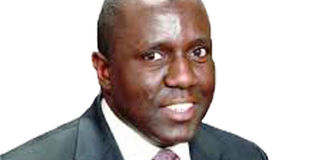Transition talks should begin in earnest

Karoli Ssemogerere
What you need to know:
A transition should decide whether to restore the safeguards of the 1995 Constitution or not.
In January 2021, Ugandans will go to the polls to elect new leaders - a president, Parliament and local government leaders. The national legislature is set to grow by at least 100 members to 530 as the total number of districts has gone up. Uganda’s 45 million population is rapidly growing.
A minority of Ugandans were alive in 1979-1980 when Idi Amin fell, a rapid change of administrations from Amin to Lule, Binaisa and Muwanga and back to Milton Obote in 1981. Less than 5 per cent were alive at Independence. This demographic shift means there is less of a precedent in handling political disagreements than before. For now, there have been three drivers of political change. Armed insurrections, military coups, putsches and uprisings (1966, 1971, 1979, 1985-1986); Civil disobedience (1953-1955, 1979); Constitutional legal means (1967, 1980, 1999-2002) and you can easily see where the balance has been. Yet our current political system only prescribes fairly anecdotal solutions like election petitions, which in the case of the presidency, are almost difficult to prove and whose mechanism of implementation is non-existent.
Uganda is still suffering from a morbid fear of any kind of transition from one president to another. If Ugandans were polled on whether the vice president would succeed the President in office in the event that the office became vacant, the majority would say no even though the Constitution prescribes that the vice president would be president for 90 days until an election is organised.
The Constitution is silent on what this would mean for the tenure of Parliament, most of whose members are elected on the coattails of the president. Given where Uganda is in 2020-2021, can the Electoral Commission (EC) organise a presidential election in 90 days to satisfy that constitutional provision in a rapidly growing country like Uganda? This includes all processes like gazetting nomination and polling dates, nominations, campaigns and the likelihood of a presidential election petition after results are announced.
Civil disobedience has not produced lasting change in Uganda even though riots have very much been on the political scene from the Bataka Riots in 1949. Our social and economic systems are too fragile as the lessons from Covid-19 lockdown show. With the exception of remote and food-rich areas, this option is limited and the backlash indicated in the high human tolls of this approach is not sustainable over any period of time. This, with very few exceptions, has and continues to be a limited avenue in Uganda and other countries.
Although elections in Ugandan with one exception (2006) continue to be lopsided, it is time for a vigorous discussion of a transition which is becoming very urgent today. Young people must be introduced to statecraft. There is need for a concerted effort to introduce diversity to a Uganda that is representative of different generations and the umbrella of communities that make up Uganda.
A transition should decide whether to restore the safeguards of the 1995 Constitution or tabling a new constitution in tune with modern times. Some constitutions have worked better, but today, nearly all constitutions are being tweaked to meet the demands of the day. Our neighbours have made slightly different rapproachments to diffuse political tension. The handshake in Kenya changed the tone. In Tanzania, unfortunately, after some defections, CCM sought to outmuscle the Opposition into non-existence in the October election. Of course, the election had other issues as the Opposition mistakenly banked on foreign support to cause domestic change. This led the incumbent John Magufuli to a wind aided victory.
In Sudan, civil disobedience shortly after Gen Bashir was re-elected morphed into a wave of protests that eventually toppled the government, but the situation was mostly economic. Suffering under sanctions for years and the loss of oil revenue from territories now in South Sudan exposed the state’s vulnerabilities.
The new Sudanese regime found itself having to negotiate some breathing space by agreeing to compensate families of victims of al-Qaeda terrorist attacks as a precondition for normalising relations with the United States.
Mr Ssemogerere is an Attorney-At-Law and an Advocate. [email protected]




